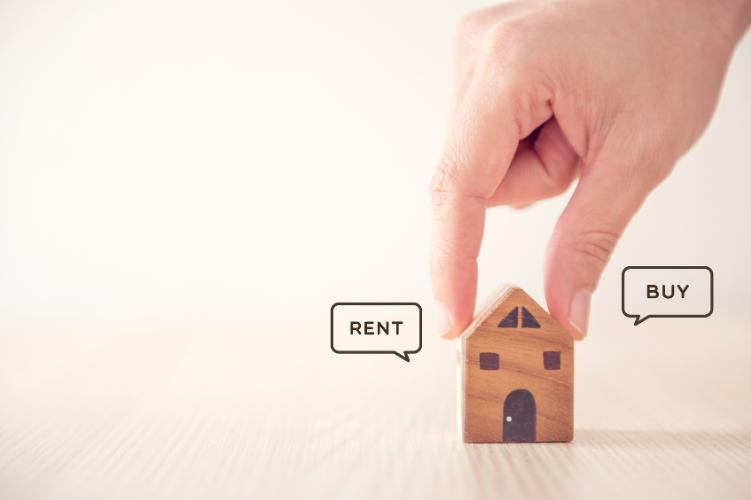When it comes to finding a place to call home, one of the most significant decisions you’ll face is whether to buy or rent. Both options come with their own set of advantages and disadvantages, and it’s essential to weigh them carefully before making a decision. Here are the pros and cons of buying vs. renting a home:
Buying a Home:
Pros:
- Building Equity: One of the primary benefits of homeownership is building equity. As you make mortgage payments, you gradually increase your ownership stake in the property, which can serve as a valuable asset in the long run.
- Freedom to Customize: Homeowners have the freedom to customize and renovate their property according to their preferences and needs. You can paint the walls, remodel the kitchen, or create a garden oasis to make the space uniquely yours.
- Potential for Investment: Real estate can be a sound investment, as property values tend to appreciate over time. Buying a home can provide potential financial gains, especially if you plan to stay in the property for an extended period.
- Stability and Roots: Owning a home can provide a sense of stability and roots in a community. It allows you to establish long-term relationships with neighbors and become an integral part of the neighborhood.
Cons:
- Financial Commitment: Buying a home involves a significant financial commitment. Besides the down payment, you’ll be responsible for mortgage payments, property taxes, insurance, and maintenance costs.
- Limited Flexibility: Homeownership ties you to a specific location, which can limit your flexibility to relocate for job opportunities or personal reasons.
Renting a Home:
Pros:
- Flexibility: Renting provides greater flexibility, as most lease terms are relatively short. This is ideal for those who prefer the freedom to move without the burden of selling a property.
- Lower Upfront Costs: Renting generally requires a lower upfront cost compared to buying a home. There’s no need for a substantial down payment, and utilities and some maintenance costs may be included in the rent.
- Minimal Maintenance Responsibility: As a renter, you’re typically not responsible for major maintenance or repairs. The landlord or property management company takes care of those issues.
Cons:
- No Equity Building: One significant downside of renting is that you do not build equity. Monthly rent payments do not contribute to ownership or financial gains.
- Limited Control: Renters have limited control over the property. You may need permission from the landlord to make changes, and you might have to deal with restrictions on pets or other personal preferences.
- Rent Increases: Rent prices can fluctuate over time, and landlords may raise the rent at the end of each lease term, potentially making it less cost-effective in the long run.
Ultimately, the decision to buy or rent depends on your individual circumstances, financial goals, and lifestyle preferences. Carefully consider the pros and cons of each option and prioritize your needs to make an informed choice that aligns with your long-term plans.

